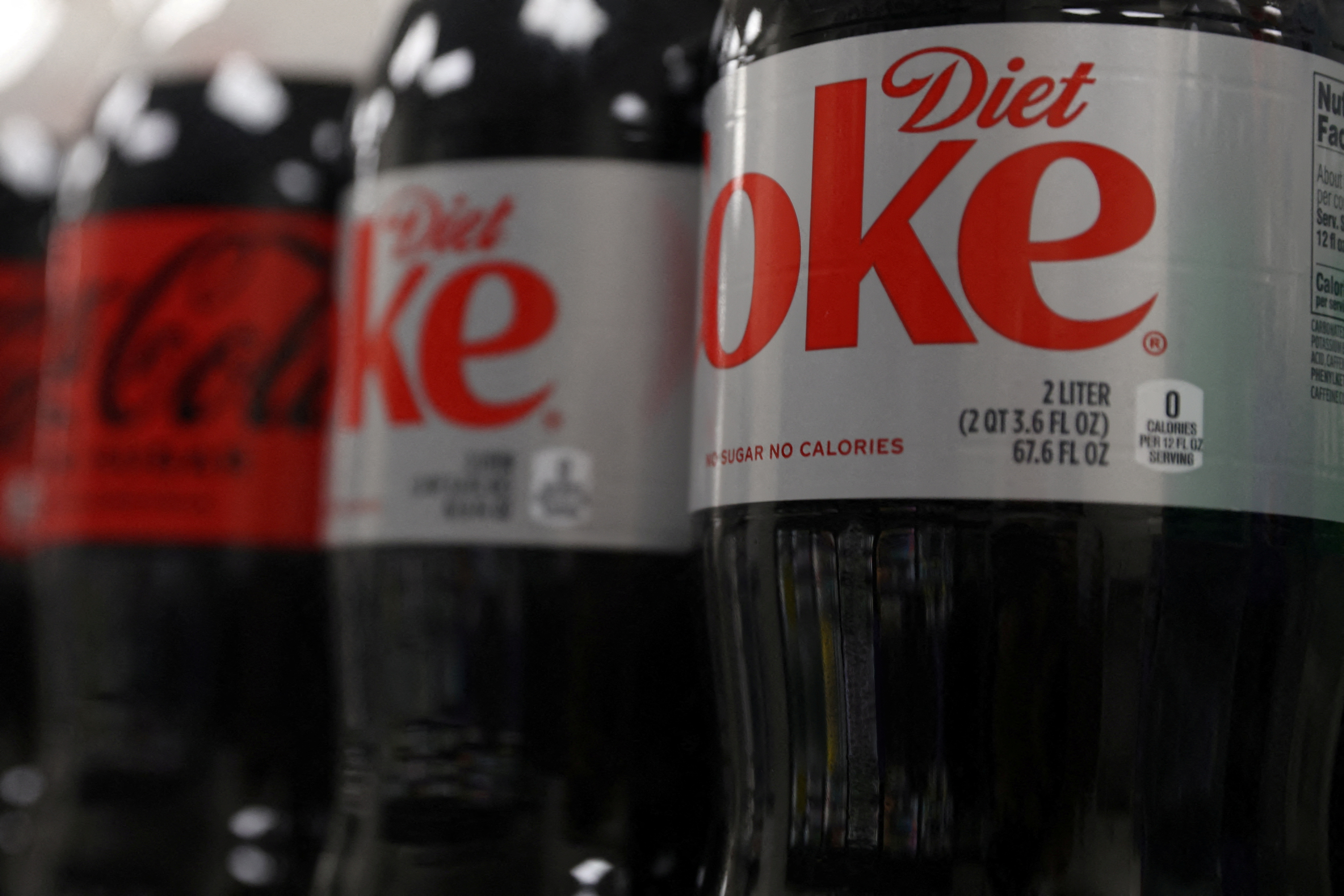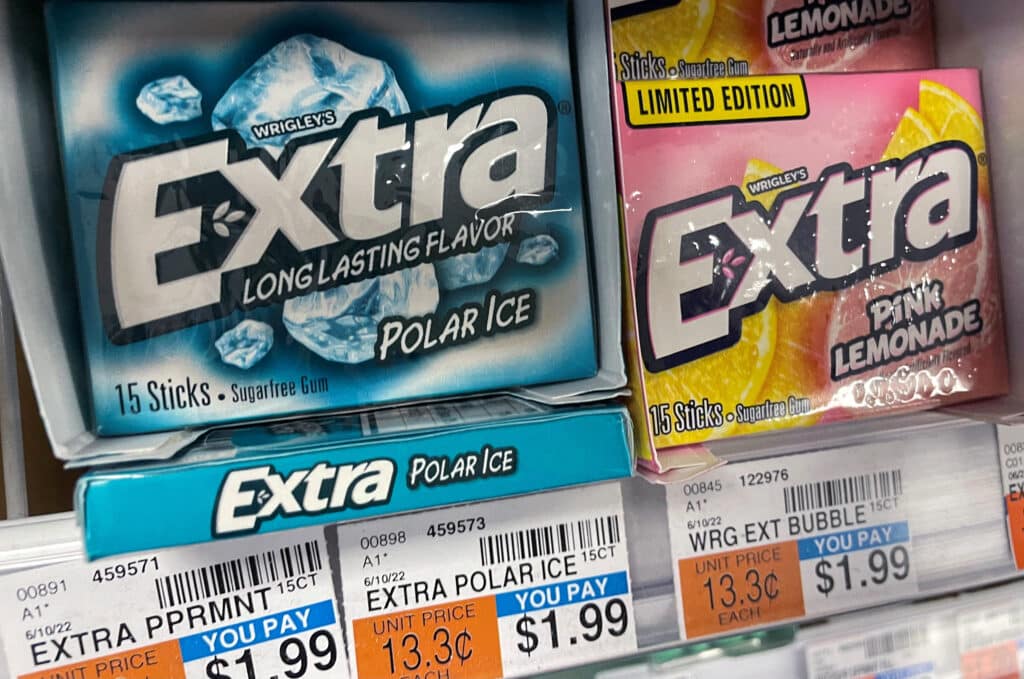The WHO warning on the popular sweetener has released a media storm
The World Health Organisation’s catergorising of aspartame as a “possible carcinogen” has caused a storm of media interest and controversy over the real risk level of the popular sweetener.
The rulings are the outcome of two separate WHO expert panels, one of which flags whether there is any evidence that a substance is a potential hazard, and the other which assesses how much of a real-life risk that substance actually poses.
Aspartame is one of the world’s most widely used sweeteners, found in products from diet sodas such as Coca-Cola and Snapple to Wrigley’s Extra chewing gum.
Assistant professor of pharmacology at the Medical School of the University of Cyprus, Nikolas Dietis said that aspartame would need to be consumed in large quantities to raise the risk of cancer drastically.
“The risk would be increased if you consumed around 15 soft drinks with aspartame a day,” he said.
The rating of “possibly carcinogenic to humans” was made for the first time on Friday by the International Agency for Research on Cancer (IARC), the WHO cancer research arm. That classification means there is limited evidence a substance can cause cancer.
That does not take into account how much a person would need to consume to be at risk, which is considered by a separate panel, the WHO and Food and Agriculture Organisation (FAO) Joint Committee on Food Additives (JECFA), based in Geneva.
After undertaking its own comprehensive review, JECFA said on Friday that it did not have convincing evidence of harm caused by aspartame, and continued to recommend that people keep their consumption levels of aspartame below 40mg/kg a day.
WHO agreed with Dietis saying that the existing consumption levels meant, for example, that a person weighing 60-70kg would have to drink more than 9-14 cans of soda daily to breach the limit, based on the average aspartame content in the beverages – around 10 times what most people consume.
“Our results do not indicate that occasional consumption could pose a risk to most consumers,” said WHO’s head of nutrition, Francesco Branca.
As a result the sweetener has been put in a lower risk category –2b – with some 300 other products. The 2b category consists of 322 items, which include both aloe vera and caffeic acid (commonly found in coffee, tea, and wine).
Speaking to the Cyprus Mail, Dietis said that this category includes items, which have certain conditions associated with them.
Like aspartame, aloe vera needs to be consumed regularly as a whole leaf extract, and in large quantities, he said.
Dietis said that aspartame debate is part of “media hype, which is not something new.”
“The hype was caused because it is a known substance,” he said. He explained that WHO classes many products every year, based on research done by the IARC and that this process is not new, as the same had happened with red meat and deli meats in previous years, which were classed in a higher risk category than the one aspartame was placed in.
More specifically, he referred to a French study published March 2022, which took a sample size of over 100,000 French adults that self-reported their diets over a decade.
The study found that there was a slightly higher risk, about (0.02 per cent), of cancer among people that regularly consume artificial sweeteners.
“Perspective is needed on all issues, and the risks need to be examined in totality,” he said.
He did not deny negative effects, which science has shown for decades, however he emphasised that limited consumption, would be no different than living an unhealthy lifestyle.
But there are a lot of scare stories out there, which seek to cast doubt on WHO’s decision to place aspartame in the 2b category, claiming that it should be classed as a higher risk substance because of a variety of health problems.
Studies and articles in the 1980s, almost a decade after the sweetener was approved for use, showed that regular intake could lead to weight gain problems and cardiovascular issues.
Then there were further studies in the 2000s conducted on rodents which supposedly revealed that there was an increase in cancer and tumours among rodents exposed to the sweetener.
A study published in Environmental Health in 2021 said: “These new findings confirm that aspartame is a chemical carcinogen in rodents. They confirm the very worrisome finding that prenatal exposure to aspartame increases cancer risk in rodent offspring.”
The IARC panel said it had made its ruling based on three studies in humans in the United States and Europe that indicated a link between hepatocellular carcinoma, a form of liver cancer, and sweetener consumption, the first of which was published in 2016.
It said limited evidence from earlier animal studies was also a factor, although the studies in question are controversial.
Meanwhile, in 2017, other studies linked the sweetener in diet sodas to increased risks of stroke and dementia.
The study showed people drinking diet soda daily were almost three times as likely to develop stroke and dementia as those who consumed it weekly or less.
But several scientists not associated with the WHO reviews said the evidence linking aspartame to cancer is weak. Food and beverage industry associations said the decisions showed aspartame was safe and a good option for people wanting to reduce sugar in their diets.
Therese Bevers, medical director of the Cancer Prevention Centre at the University of Texas MD Anderson Cancer Centre, in Houston, said “the possibility of weight gain and obesity is a much bigger problem and bigger risk factor than aspartame could ever be.”
Even so, Branca suggested consumers weighing beverage choices consider neither aspartame nor sweetener.
“If consumers are faced with the decision of whether to take cola with sweeteners or one with sugar, I think there should be a third option considered,” Branca said. “Drink water instead.”








Click here to change your cookie preferences